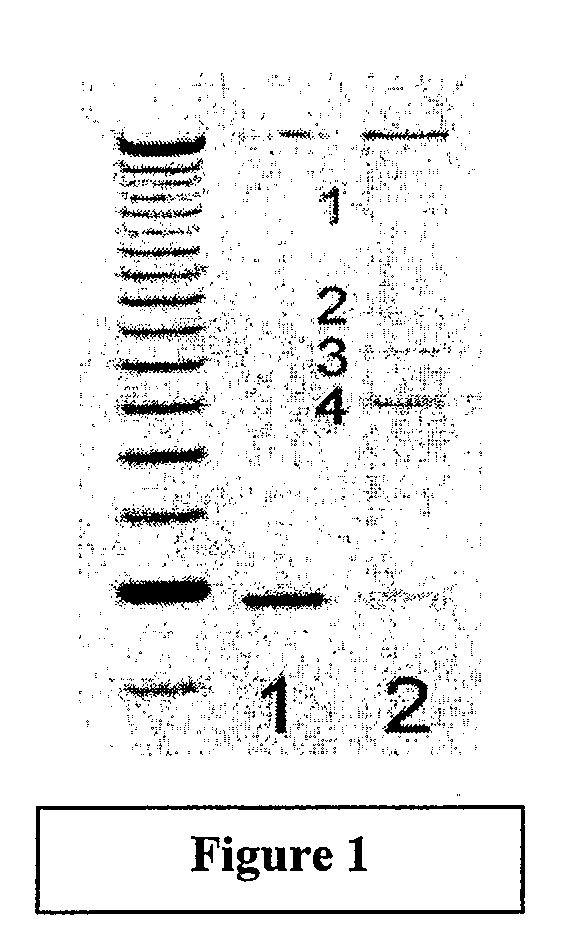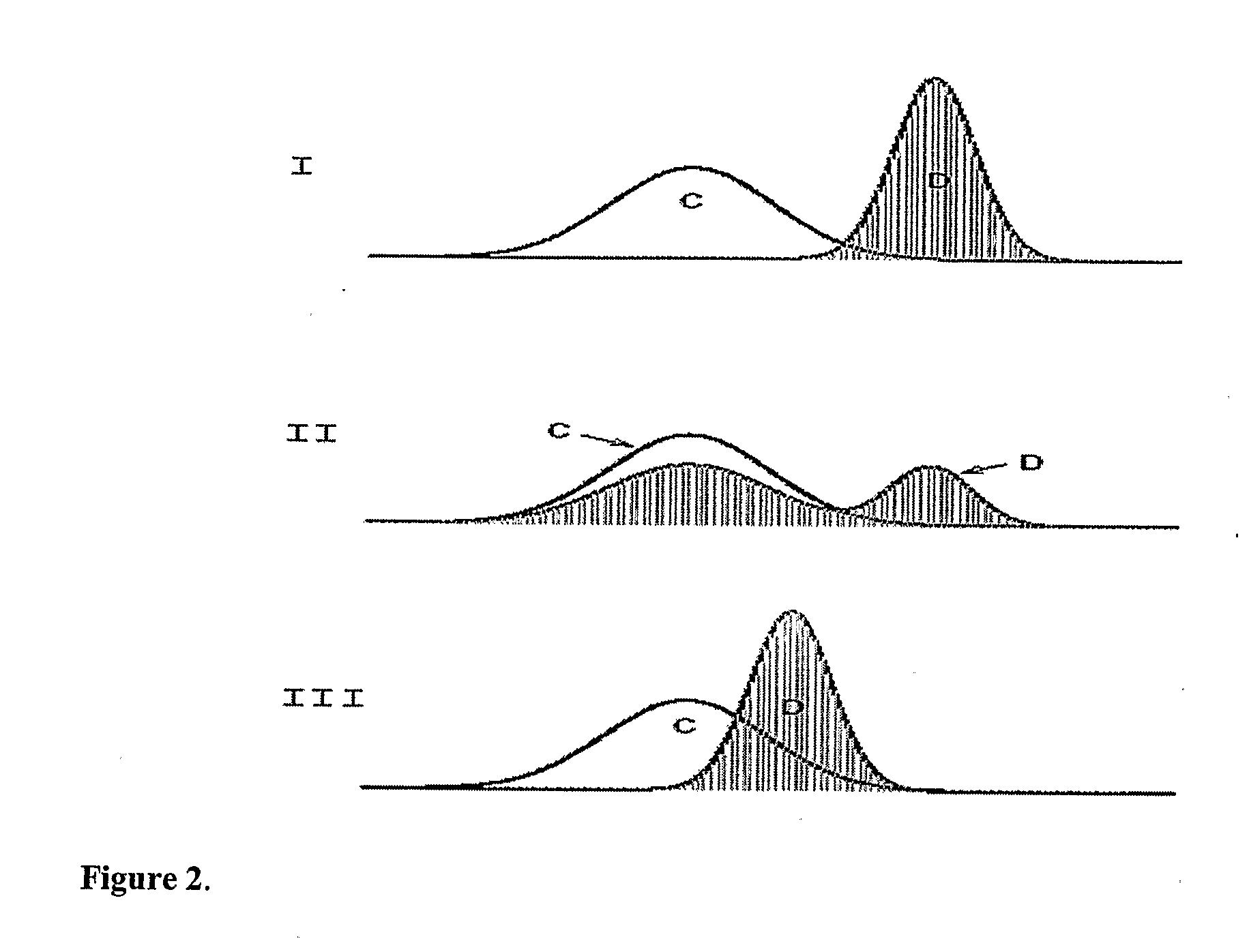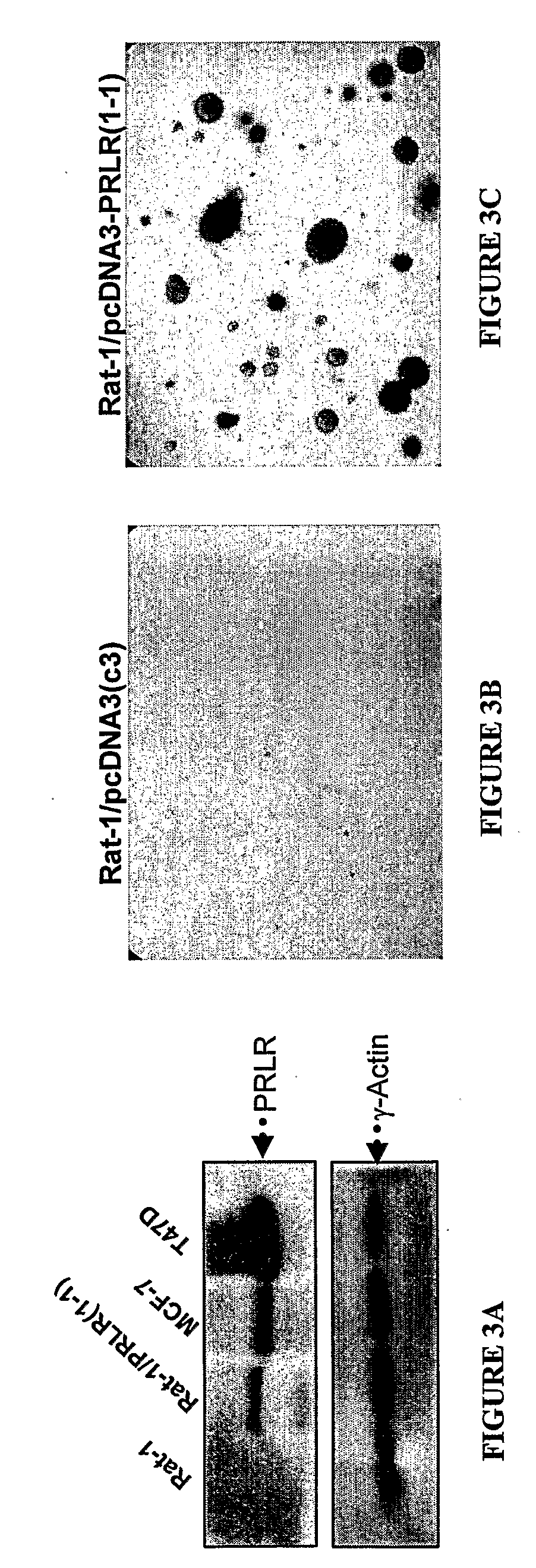Cancer Related Genes (PRLR)
a gene and gene technology, applied in the field of cancer-associated genes, can solve the problems of high cancer rate of infected animals and clustering, and achieve the effect of modulating the survival rate of cancerous cells and heightening the adcc activity
- Summary
- Abstract
- Description
- Claims
- Application Information
AI Technical Summary
Benefits of technology
Problems solved by technology
Method used
Image
Examples
example 1
Insertion Site Analysis Following Tumor Induction in Mice
[0432]Tumors were induced in mice using either mouse mammary tumor virus (MMTV) or murine leukemia virus (MLV). MMTV causes mammary adenocarcinomas and MLV causes a variety of different hematopoetic malignancies (primarily T- or B-cell lymphomas).
[0433]Three routes of infection were used: (1) injection of neonates with purified virus preparations,[0434](2) infection by milk-borne virus during nursing, and (3) genetic transmission of pathogenic proviruses via the germ-line (Akvr1 and / or Mtv2). The type of malignancy present in each affected mouse was determined by histological analysis of H&E-stained thin sections of formalin-fixed, paraffin-embedded biopsy samples. Host DNA sequences flanking all clonally-integrated proviruses in each tumor were recovered by nested anchored-PCR using two virus-specific primers and two primers specific for a 40 bp double stranded DNA anchor ligated to restriction enzyme digested tumor DNA. Ampl...
example 2
Analysis of Quantitative RT-PCR: Comparative CT Method
[0440]The RT-PCR analysis was divided into 4 major steps: 1) RNA purification from primary normal and tumor tissues; 2) Generation of first strand cDNA from the purified tissue RNA for Real Time Quantitative PCR; 3) Setup RT-PCR for gene expression using ABI PRISM 7900HT Sequence Detection System tailored for 384-well reactions; 4) Analyze RT-PCR data by statistical methods to identify genes differentially expressed (up-regulated) in cancer.
[0441]These steps are set out in more detail below.
A) RNA Purification from Primary Normal and Tumor Tissues
[0442]This was performed using Qiagen RNeasy mini Kit CAT#74106. Tissue chucks typically yielded approximately 30 μg of RNA resulting in a final concentration of approximately 200 ng / μl if 150 μl of elution buffer was used.
[0443]After RNA was extracted using Qiagen's protocol, Ribogreen quantitation reagents from Molecular Probes was used to determine yield and concentration of RNA accor...
example 3
Detection of PRLR-Sequences in Human Cancer Cells and Tissues
[0480]DNA from prostate and breast cancer tissues and other human cancer tissues, human colon, normal human tissues including non-cancerous prostate, and from other human cell lines are extracted following the procedure of Delli Bovi et al. (1986, Cancer Res. 46:6333-6338). The DNA is resuspended in a solution containing 0.05 M Tris HCl buffer, pH 7.8, and 0.1 mM EDTA, and the amount of DNA recovered is determined by microfluorometry using Hoechst 33258 dye. Cesarone, C. et al., Anal Biochem 100:188-197 (1979).
[0481]Polymerase chain reaction (PCR) is performed using Taq polymerase following the conditions recommended by the manufacturer (Perkin Elmer Cetus) with regard to buffer, Mg2+, and nucleotide concentrations. Thermocycling is performed in a DNA cycler by denaturation at 94° C. for 3 min. followed by either 35 or 50 cycles of 94° C. for 1.5 min., 50° C. for 2 min. and 72° C. for 3 min. The ability of the PCR to ampli...
PUM
| Property | Measurement | Unit |
|---|---|---|
| Molar density | aaaaa | aaaaa |
| Molar density | aaaaa | aaaaa |
| Angle | aaaaa | aaaaa |
Abstract
Description
Claims
Application Information
 Login to View More
Login to View More - R&D
- Intellectual Property
- Life Sciences
- Materials
- Tech Scout
- Unparalleled Data Quality
- Higher Quality Content
- 60% Fewer Hallucinations
Browse by: Latest US Patents, China's latest patents, Technical Efficacy Thesaurus, Application Domain, Technology Topic, Popular Technical Reports.
© 2025 PatSnap. All rights reserved.Legal|Privacy policy|Modern Slavery Act Transparency Statement|Sitemap|About US| Contact US: help@patsnap.com



